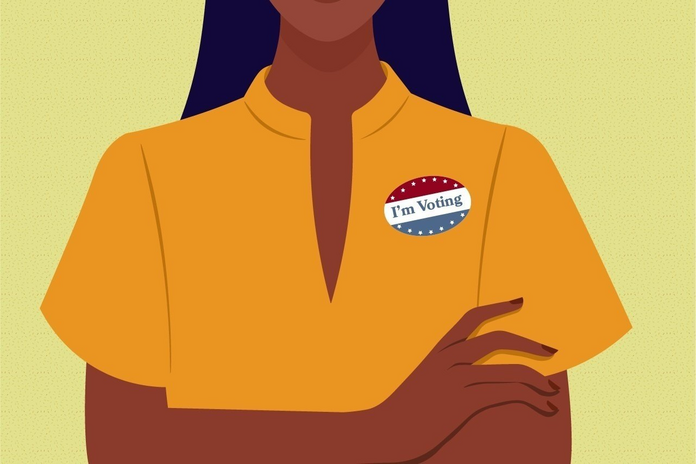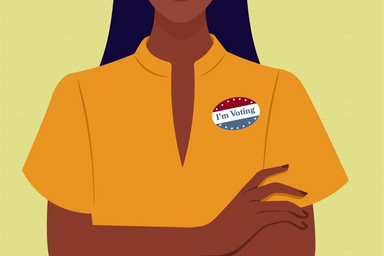The US elections are just around the corner. Early voting is on the rise: at least 69 million Americans have already voted in the election, equaling roughly half of the total voter turnout from 2016. The surge in voting feels inspiring… yet unsettling. One could chalk up 2020’s wave of voter enthusiasm to the increasingly divided political climate, or to the popularity of early voting due to COVID-19. But the question still lingers: why hasn’t voting been popular before?
The turnout rate of the voter-eligible population for presidential elections has been hovering around 60% since the beginning of the 2000s, and drops even further during midterm elections. There’s a phrase that you hear often: “my vote doesn’t matter”. Large-scale elections can certainly give voters that impression, but it’s undoubtedly a red flag for the deeper flaws that permeate the US voting system.
Last Week Tonight is a show airing on HBO that can only be best summarized by its host, John Oliver: “reciting major systemic problems with the cadence of a joke”. As stated, the show often takes deep dives into systemic issues that often illustrate how seemingly unimportant or obscure topics such as municipal violations or special-purpose districts can have widespread socio-political effects. Additionally, the show has covered several important topics related to voting rights and elections that help explain why America has had a voting problem.
Let’s begin with the obvious lack of representation
When we talk about voter turnout, we often refer to the part of the population who is eligible to vote. However, we often forget about the percentage of Americans who are over the age limit, yet still do not have voting rights. Take the citizens who are living in US territories like Puerto Rico, Guam, and the American Samoa:
As Oliver states in the episode, “Puerto Rico has more American citizens than 21 US states, but less voting rights than any of them.”
In the eyes of the law, citizens of the US territories are not viewed as equal to their counterparts in the states. And it doesn’t stop there. Another US population that suffers from a lack of representation is America’s own capital, Washington DC. Oliver discusses the effects of DC’s status as a federal district in his piece below:
While residents in Washington DC have the right to vote for President (unlike the US territories), they are only represented in Congress by a single delegate who cannot vote on the House floor.
Finally, we can’t discuss voting representation without talking about the issue of the Electoral College. Oliver explains how the Electoral College distorts the will of the majority, while granting more power to rural and often conservative-leaning states (discussion begins at 8:50):
More on disenfranchisement and manipulation
Disenfranchisement isn’t limited to residence or ethnicity – there are often more subversive ways in which citizens can be barred from voting, such as those who have been convicted of a criminal offense:
Not only does the episode explain the disproportionate effect of felony disenfranchisement on people of color, it also explores the challenging process that these citizens have to go through in order to regain their civil rights. In addition to the felony disenfranchisement laws that affect almost 6 million Americans, state laws concerning voter IDs can make voting harder for citizens that are eligible to vote:
While those who support voter ID laws insist they are necessary to prevent fraud, Oliver points out that requiring an ID to vote only prevents voter impersonation fraud, an incredibly rare occurrence.
Another structural problem that can lead to unfair political advantages is the practice of gerrymandering:
Gerrymandering, for example, can lead to district boundaries that can force a majority of racial minorities into a single district, thus reducing their overall influence in determining who receives the electoral votes in that state.
Finally, the 2020 elections
This series of episodes explores the prevalent issues surrounding the current general election such as election security and voting by mail. Finally, in the episode below, Oliver discusses the various efforts that have been made to destabilize the vote in 2020 and other preparations voters should take to make sure their ballot is properly counted:
Terms like disenfranchisement, inequality of representation, and voter suppression all contribute to the disillusioned mentality that many voters possess. However, understanding why our elections can be inherently unfair is not an argument to stop voting; rather, it serves to underscore why our votes matter more than ever. We have to speak up for those whose voices are less likely to be heard. In order to fix America’s elections, we need to vote for those who are willing to make the right changes.
If you haven’t voted yet, please make a plan to vote at https://iwillvote.com!


